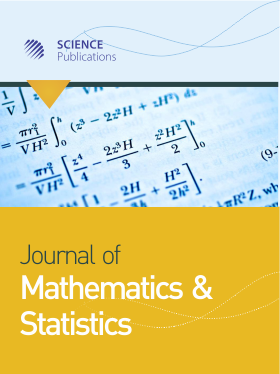Two New Formulas for Generating Infinite Sets of Integer Numbers as a Sum of Two and Three Signed Cubic Numbers
Abstract
Problem statement: Two new families are introduced for generating infinite sets of integers by the summation of two and three signed cubic numbers. Approach: These two families have reduced the number of representation of finite sets of integer as a sum of cubic numbers from four cubes to two and three signed cubes. Results: It is also shown that not all integers can be represented as a sum of two cubic numbers. The first family is called JR-2CN generates infinite set of integer numbers by the sum of two signed cubic numbers. The second family is named as JR-3CN generates infinite set of integer numbers by the sum of three signed cubic numbers. Conclusion/Recommendations: The integers in these two families have been generated by using quadratic polynomials and have been studied depending on the geometric analysis of the parabolas. Samples of integers generated by these two families are shown along with their properties and graphical behavior.
DOI: https://doi.org/10.3844/jmssp.2010.462.467

- 3,771 Views
- 2,386 Downloads
- 0 Citations
Download
Keywords
- Cubic numbers
- Integer representations
- Quadratic polynomials
